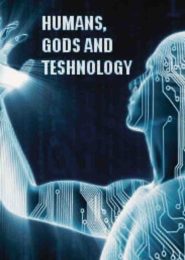Playing God (2012)
Playing God, a 2012 BBC documentary in the Horizon series, hosted by Adam Rutherford, uncovers the fascinating world of synthetic biology.
This emerging field aims to break down nature into spare parts and then rebuild it according to our wishes.
Adam Rutherford, who has studied synthetic biology for a decade, believes it’s the most effective way to pass along traits between different organisms. Unlike typical mating, genetic tinkering allows us to create unique hybrids.
One such creation discussed in the documentary is the spider-goat—a part goat, part spider hybrid. Its milk contains proteins found in spider silk, which can be used to create artificial spider webs.
This technology could revolutionize silk production, making it more efficient and cost-effective.
Synthetic biology isn’t limited to animals. Biotech company Amyris in California has applied it to yeast. Instead of producing alcohol through sugar fermentation, this yeast produces diesel.
The yield is substantially greater than conventional methods, and this bio-diesel is already powering cars in Brazil.
Researchers explore sending ‘biological machines’ into our brains. MIT professor Ed Boyden leads a team in synthetic neuroscience.
By inserting genetic code for light-to-electrical energy conversion, they aim to treat neurological disorders. Imagine direct control over light-sensitive brain functions.
MIT professor Ron Weiss combines computer programming and engineering with biology, creating a new essence of synthetic biology.
Playing God invites us to navigate the complexities of science and ethics. It’s not merely about breaking down nature; it’s about designing a robust suite of solutions that enhance our world.




